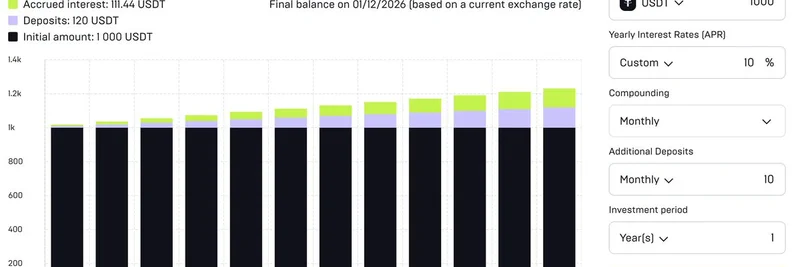If you've been following the crypto space, especially projects with massive user bases like Pi Network, you know that Know Your Customer (KYC) processes can be a real bottleneck. Recently, BSC News tweeted about a game-changing update from Pi Network: the introduction of "Fast-Track KYC." This AI-enhanced feature promises to make onboarding smoother and faster, potentially attracting even more users to the platform. Let's break it down in simple terms and see what it means for the broader blockchain world, including meme token enthusiasts who thrive on quick community growth.
What Exactly is Fast-Track KYC?
Fast-Track KYC is Pi Network's new initiative, rolled out on September 19, 2025, aimed at letting new users skip some of the traditional hurdles to get verified and start engaging with the Mainnet ecosystem right away. Unlike the standard process, which requires at least 30 mining sessions before you can even apply for KYC, this fast-track option uses advanced AI to verify identities quickly. It's available to Pioneers (that's what Pi calls its users) with fewer than 30 sessions and even non-users, allowing them to activate their Mainnet wallets and dive into apps, services, local commerce, and events without the wait.
Think of it like this: in the old days, getting into a crypto project felt like waiting in line for hours at the DMV. Now, with AI handling much of the heavy lifting, it's more like a quick self-checkout at the grocery store. This doesn't mean you can immediately transfer your mined Pi tokens—that still requires the full standard KYC and those 30 sessions—but it opens the door to participation much earlier.
The Notorious Past of Pi's KYC Process
Pi Network's KYC has been a hot topic among its community, often called "Pioneers," for good reason. The original setup relied on a mix of optical character recognition (that's tech that reads text from images, like scanning your ID), AI tools, and even community validators—real people reviewing submissions. While this decentralized approach sounded cool in theory, it led to massive backlogs. Users complained about long wait times, sometimes months, to get verified and claim their tokens.
These delays not only frustrated users but also slowed down the entire ecosystem's growth. Pi Network, which boasts millions of mobile miners, has been building toward its Mainnet launch, but KYC issues have been a major roadblock. The tweet from BSC News highlights how these AI enhancements could turn things around, making the process "notorious" no more.
How Does the AI Magic Work?
At its core, Fast-Track KYC integrates AI more deeply into the verification protocol, moving authority right onto the blockchain itself. This aligns with standards like ERC-3643, which embeds identity and compliance directly into tokens on public blockchains—fancy way of saying it makes everything more secure and decentralized without needing outside help.
Users access this through the Pi Wallet app, where AI checks identities in-house, reducing reliance on third-party providers like Banxa. The standards are still strict to prevent fraud—maybe even more conservative in some cases—but the automation cuts down on human involvement, speeding things up. Pi plans to keep an eye on how it's performing and tweak it as needed, possibly even blending it into the regular KYC flow to help clear those backlogs.
For meme token projects, which often explode in popularity overnight, this kind of quick onboarding could be inspirational. Imagine launching a new meme coin and having thousands of verified users ready to trade or participate in community events without weeks of waiting.
Who Can Use It and What Are the Benefits?
If you're a new Pioneer with under 30 mining sessions or haven't even started yet, you're eligible—as long as you pass the anti-fraud checks. It's also opening doors in regions like Syria, thanks to recent U.S. policy shifts.
The perks are clear: faster access means more people testing apps, building on the platform, and driving real-world use cases like payments and P2P transactions. For Pi Network, this could supercharge developer activity and grow the verified user base, which is crucial for any blockchain project aiming for mass adoption. In the meme token space, where virality is key, similar streamlined processes could help communities scale quickly without losing momentum to bureaucratic hurdles.
Any Potential Drawbacks?
No update is perfect. The AI's conservative approach might make verification tougher for some users, and remember, this doesn't unlock full token transfers— that's still tied to the standard process. Scaling AI for millions could bring its own challenges, but Pi's commitment to monitoring and refining gives hope that it'll improve over time.
Why This Matters for Meme Tokens and Beyond
While Pi Network isn't a traditional meme token, its viral, mobile-first approach has meme-like qualities—spreading through word-of-mouth and building hype around "free" mining. Innovations like Fast-Track KYC could set a precedent for meme projects on chains like Solana or Base, where quick, secure onboarding is essential to capture fleeting internet trends.
If you're into crypto, keeping an eye on updates like this is crucial. They not only solve pain points but also push the industry toward more user-friendly experiences. For more details, check out the full article on BSC News. What do you think—will this finally put Pi on the map for mainstream adoption?

